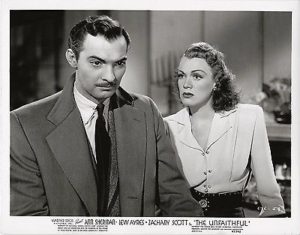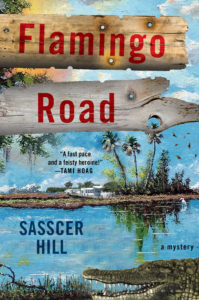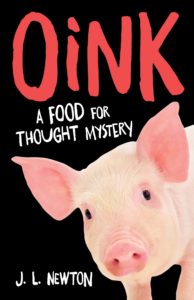Writers have a reputation–sometimes deserved–of being drama queens. Right this very moment, I am wearing the crown. ? My head aches, my eyeballs are dry as ping pong balls, I just this moment came thisclose to accidentally taking a family member’s Adderall instead of a handful of ibuprofen, when I turn my head, my neck sounds like it’s filled with potato chips, and I’m at the computer two hours past my bedtime for the 13th night in a row. This can only mean one thing:
I finished my latest book and sent it to my agent today!
Maybe it’s just the sleep-deprivation, but I feel a bit…insane. I actually left the house today for the first time in let’s-not-talk-about-how-many-days. Tuesday is the day I schedule appointments and run errands (and, no, I’m not yet eligible for the Tuesday senior discounts!). I have a vague memory of mailing things, and listening to someone telling me about a friend’s son who has a collapsed lung. I could only respond, “Oh, that’s terrible.” But I think I said it about 30 times, because it felt weird to actually be talking to another human who wasn’t my husband and I was having trouble following the details. I could go on about how I’m waking up to the alarming state of our home, and the nutritional paucity of the meals I’ve been slinging to my family over the past two weeks, but you can simply picture a post-tornado scene, littered with Chinese takeout boxes and piles of unopened mail. (Okay. There aren’t really food boxes, but there’s a lot of mail, and I might have had reheated pizza for lunch.)
BUT. The state of things isn’t going to change for the next little while, because while I’ve sent off the manuscript, there’s much more to do. (Hey, I bet you thought this was going to just be a touchy-feely blog. Surprise!)
I suspect that in the long history of TKZ, folks have talked about what an agent needs from a writer in order to put together a nice package for editors. But here’s a refresher. I have an excellent agent, and she has very specific requests. Your experience may differ.
Your agent (or you, if you’re doing the submitting) wants editors to see you as somebody who: 1) has written a kick-ass book; 2) fits into an identifiable category; 3) will be a partner in selling your book. It’s pretty simple, but this is stuff you need to think about between the time you finish your book and start sending it out to agents. Yes, even before you have an agent because if you have all of this information together, you’ll be more appealing to an agent.
A clean manuscript. Tidy it up, make sure it’s double-spaced, in a legible font with page numbers, your name, and title in the header. Don’t include a picture of your cat, child, or sketches of what you want the cover to look like.
A bio. Who are you? Where are you from? Have you published anything else or won any contests? Keep it brief–around 250 words. Don’t share your hobbies or recipes or phone number (that goes on the cover page)
Oh, and do have a cover page with your name, address, phone, and email up in the left-hand corner. Title should be centered in the middle of the page, with “by” and your name below it in a smaller font. No page number on the cover page. There’s a box you can check for “different first page” in the header format menu.
Comps. This can be tough. List writers who write similar books to yours. The Amazon “Customers Also Bought” list is a good place to start. Include as many as you can. Be specific. Don’t list, say, Michael Connelly, if you write bakery mysteries, or romantic suspense. Do reach, though.
Your platform. There are tons of places on the Internet (i.e. Jane Friedman) where you can learn what a marketing platform is. Everywhere you’re found online is part of your platform. (I’m certain TKZ has info–anyone have a link?) Facebook, Instagram, Twitter, Pinterest, Google+, Linked In, Goodreads. No Tindr or Grindr. I confess I’m not a Snapchat-er. Does anyone here use it for promo? But your platform also includes your website, blog, and email list. (It’s never too soon to start building a mailing list. Start with people you know in real life.) Sex tapes totally count. But they can also count against you.
Professional Associations and Contacts. Networking can be challenging for introverted writers. Most professional groups have associate memberships for unpublished writers or readers. Join. Get the newsletters. Go to conferences and volunteer. Get involved. An editor wants to know that you’re out there networking with other writers and getting your name in front of potential readers Your agent will also want to know if you have writer contracts who might provide you with the B-word: BLURBS. Most writers will tell you that this is by far the most awkward and uncomfortable thing about the business. But it must be done. Blurbs from other writers not only look nice on a cover, but suggest that someone a reader might admire likes your book enough to say something nice about it. A big name can be a huge deal. If you can’t get a big name, a medium name will do. You’ll find that some writers, particularly indie writers, quote reader reviews. It’s fine, but they won’t get an agent’s or publisher’s attention. Don’t make up blurbs. That’s really bad, and you’ll get caught.
If you can get a writer to blurb your book even before it goes to agents and editors you get bonus points. It’s something my agent likes me to do before she goes out with a book. Talk about a difficult ask…I once had a NYT bestselling writer turn me down for a pre-submission blurb, and she wasn’t very nice about it. It’s worth a shot, though. Give your book every advantage.
Be proactive in describing how you might promote your book. Newsletters, contests, ARC giveaways, guest blogs, etc. Think about reaching out to readers. Even if your publisher has a promotion budget–a rarity these days–you need to do everything you can to pitch in.
Editors. Do you know folks in the business? A friend of a friend? Your agent will have many contacts, but if you know someone, they might be able to direct you to just the right editor in their publishing house.
I think that’s it. Can you all think of anything I’m missing? Remember–You’ve put your heart and soul into your work. Honor it, and take responsibility for it. You can make a real difference for yourself.











